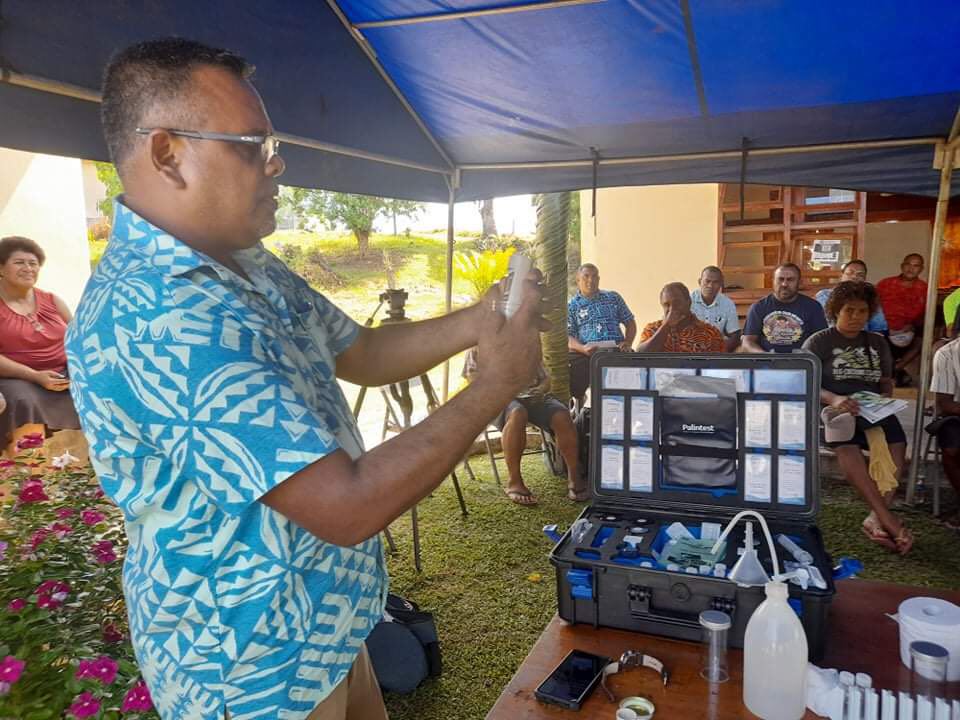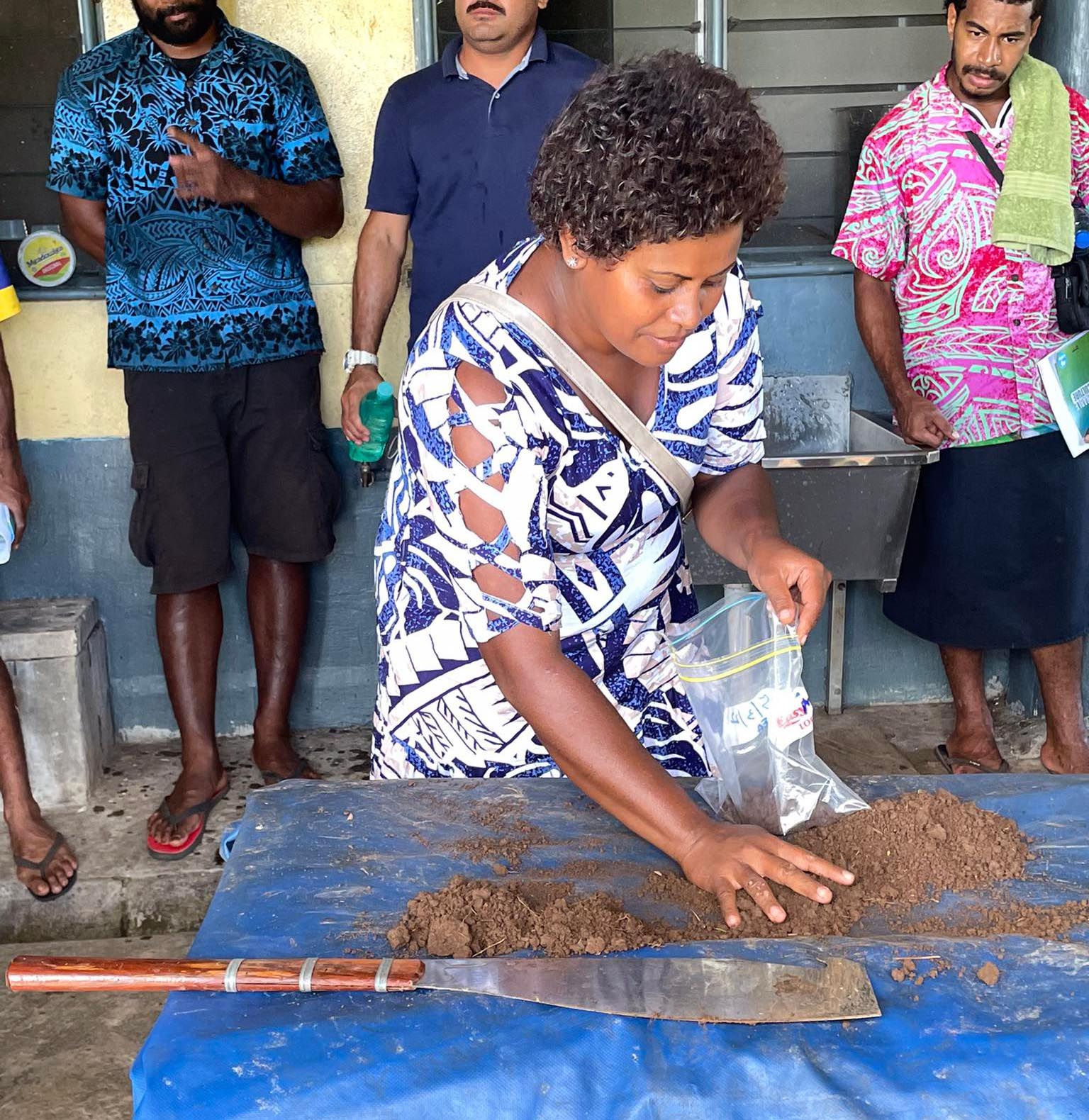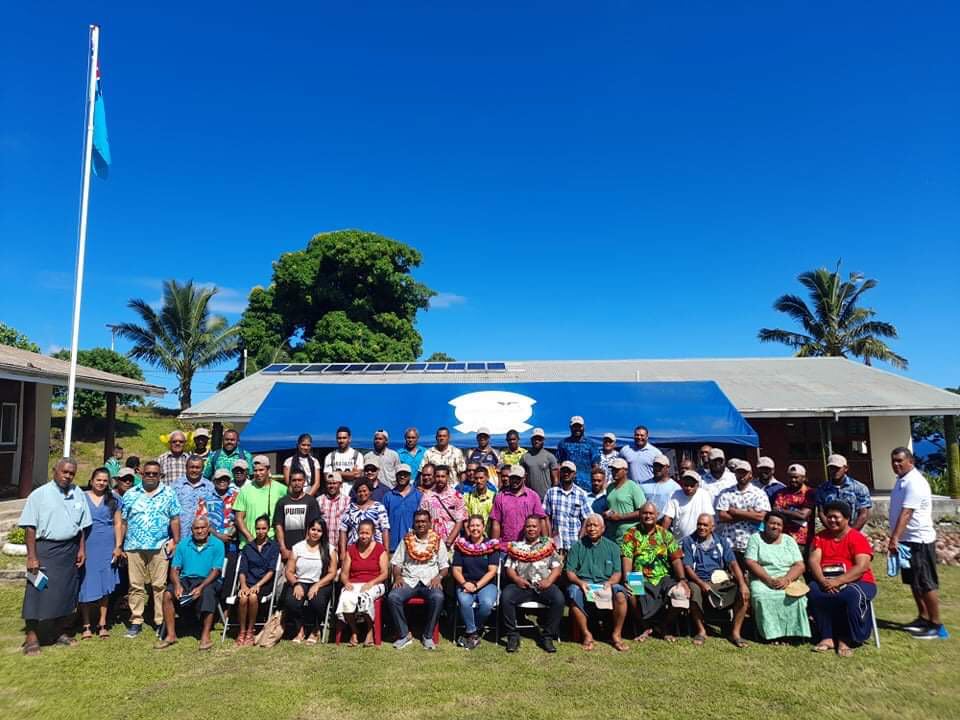Vital ACIAR-supported training on sustainable soil management practices is underway in Taveuni, Fiji, as part of long-running regional efforts to support food production, healthy ecosystems, and climate change mitigation.
In Fiji, traditional gardening systems have intensified and resulted in the depletion of the soil nutrient capital. For Taveuni, intensified taro production since 1990 has also resulted in a significant decline in nutrients from the soil system.
ACIAR Research Program Manager for Soil and Land Management, Dr James Quilty, said the fertility decline in combination with soil organic nitrogen and carbon loss, lack of rotation, pests and diseases, and other agronomic issues have all caused a fall in productivity.
'This project is helping Taveuni farmers to understand and appreciate the importance of organic matter and nutrient inputs, especially Potassium, for taro production. But soil knowledge is still a constraint on sustainable intensification and resilience of agriculture.'
'At present, extension officers and other local agricultural agents are unable to reliably recommend optimal nutrient and soil health management strategies for farmers,' he added.

The 3-day training from 14-17 March is aiming to raise awareness of the importance of sustainable soil management to improve soil fertility.
The Pacific Community (SPC) Program Leader for Sustainable Agriculture, Mr Gibson Susumu, said soil health is a vital component of the agricultural system that is not well recognised in traditional and large-scale farmers that have intensified their production in a relatively short period of time.
'It must be considered the foundation of productive, sustainable agriculture. Through the Land Resources Division, SPC has worked closely with ACIAR to train in-country staff from Fiji, Samoa, Tonga, Kiribati, and Tuvalu to revitalise our farmers' knowledge of soil health management,' he added.

Project Leader and group leader of the Soil and Process Function Group within the Sustainability Program at CSIRO Agriculture and Food, Dr Ben Macdonald, added that the training would help farmers and agricultural extension officers enhance soil knowledge and provide a reliable foundation for sustainable intensification of agricultural systems.
'We hope to raise awareness on the importance of good nutrient management and regular soil testing for plant nutrient levels. At the same time, be able to train participants on diagnosis and identify common plant nutritional disorders.'
Participants will include smallholder and commercial farmers, taro exporters, and Ministry of Agriculture extension officers.

They will receive training on sustainable soil management, the importance of good nutrient management, soil testing for available nutrients, and diagnosing plant nutritional disorders.
The training is supported by ACIAR through the Pacific Soil Management Project with CSIRO and is organised by SPC and the Fiji Ministry of Agriculture.
Learn more about the project via the ACIAR website.






